
Chipmunks in love
The ground squirrel has body stripes like chipmunks, but no head stripes. A tree squirrel is larger, has a longer tail and no stripes. They all have short fur and small rounded ears. Chipmunks range from 6 to 12 inches (16 - 30 cm) in length. Ground squirrels range from 8 to 12 inches (25 - 30 cm) in length. Tree squirrels are 12 to 20 inches.

Chipmunk Vs. Squirrel 7 Key Differences Explained
They have light-colored underbellies and brown feet. In contrast to the larger squirrel, chipmunks grow to 8 to 10 inches and weigh around 2 and 1/2 to 4 ounces. Chipmunks have distinct stripes, so you'll never mistake them for a squirrel. On the other hand, squirrels lack stripes and are significantly larger.
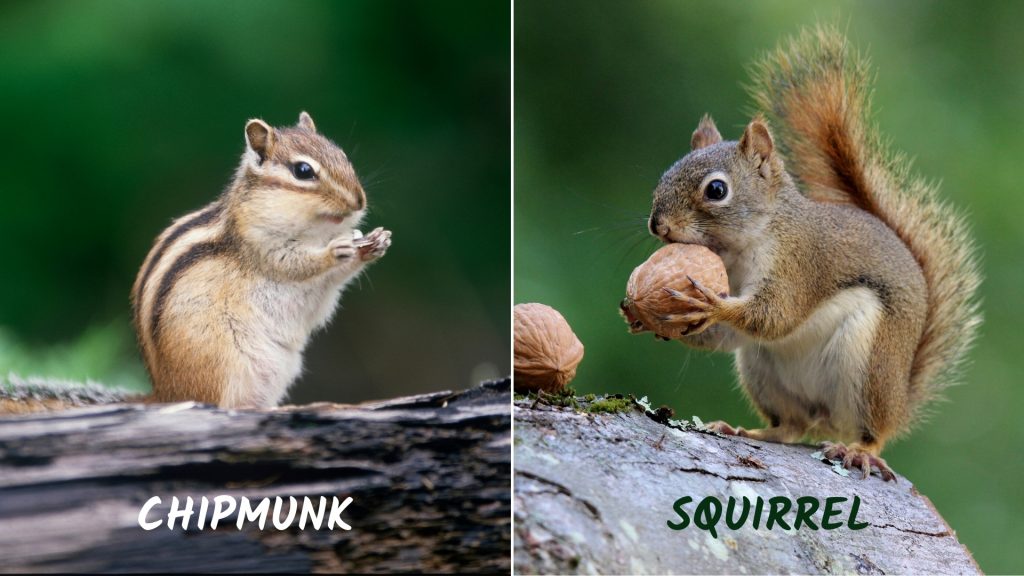
Chipmunk Control How To Get Rid of Chipmunks? Pest Samurai
On average, red squirrels measure 10-15 inches long, a bit smaller than the more common grey squirrel. Chipmunks are known for their small size, even when compared to squirrels. Including their tails, chipmunks measure 8-10 inches long, rarely exceeding that. Many species are even smaller. Red Squirrel vs Chipmunk: Color. Chipmunks are similar.
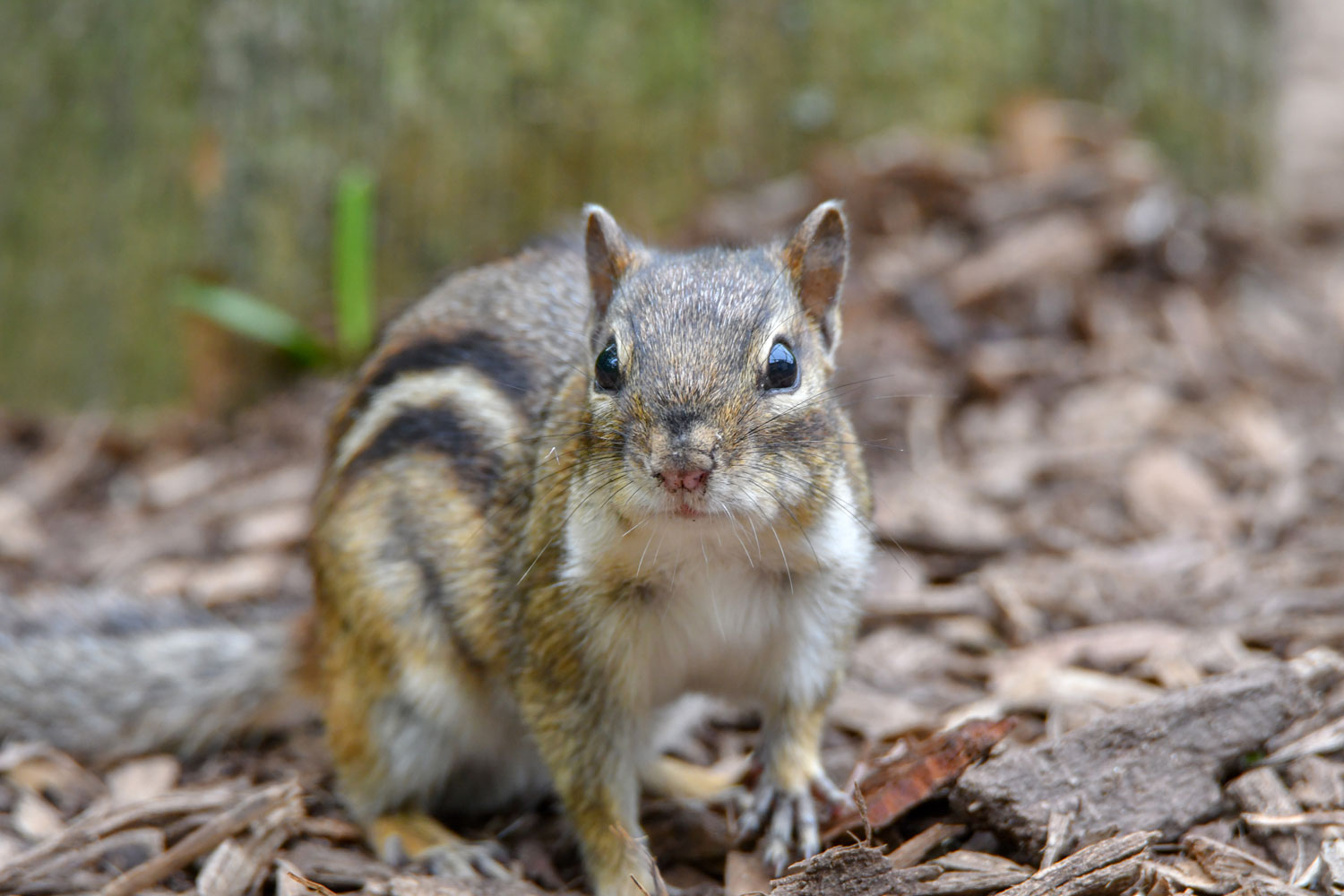
What's the Difference Chipmunk vs. Ground Squirrel Forest Preserve
Squirrels normally appear to look larger than the average chipmunk. The size of the average squirrel differs from species to species, with gray squirrels measuring from 17 to 20 inches, and the average weight of 1.5 pounds. Normally, squirrels have a slender shape, their eyes are larger, and their tails are more bushy.

Chipmunk vs. Squirrel What's The Difference
Least Chipmunk. These are the smallest squirrels in the park. Their body ranges from less than seven inches to nine inches long (including the tail). The most apparent feature is the five stripes on the back and sides of their small bodies. Two of the stripes extend onto the head. Only the chipmunk as stripes on its face.

Chipmunk Vs Squirrel (10 Differences) Wildlife Informer
A conspicuous dissimilarity is the substantial size disparity between ground squirrels and chipmunks. An average chipmunk is about 5-8 inches long (including the tail), weighing around 1-6 ounces. Ground squirrels measure about 9-20 inches long and can weigh up to 14 ounces. The chipmunk 's small size allows it to easily run through burrows.

What Is The Difference Between Chipmunks and Squirrels (13 Biological
Chipmunk vs Squirrel: Size. Squirrels are larger than chipmunks. A squirrel's body measures from 9 to 12 inches in length. They have a tail that can tack on another 12 inches to their total length! Alternatively, a chipmunk's body is from 3 to 5 inches long. Its tail adds another 3 to 5 inches to its total length.
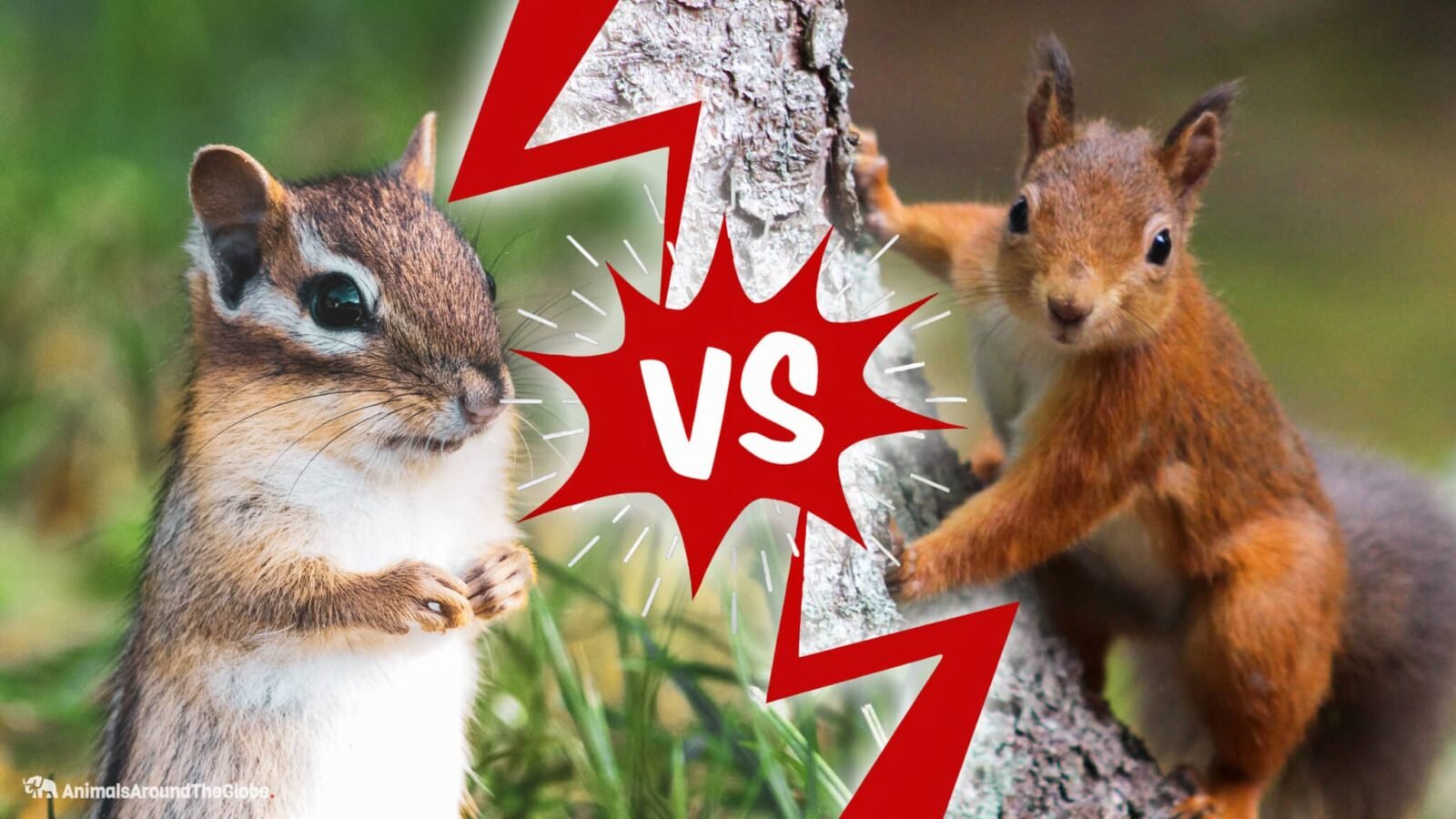
Chipmunk Vs. Squirrel The Great Debate
Chipmunks. These are generally smaller and lighter than squirrels. They range from 6 to 12 inches (16 - 30 cm) in length. The 'Least chipmunk' (Tamias minimus) can be 7.2 to 8.5 inches long and it may weigh as much as 1.1 to 1.8 ounces. The Eastern chipmunk can be 11 inches long and may weigh as much as 4.4 ounces.

Chipmunks vs Squirrels Size, Stripes and Ears! Squirrels at the Feeder
Appearance. Chipmunks and squirrels have distinct physical features. Chipmunks have noticeable stripes on their faces and bodies, while squirrels typically lack these markings. Additionally, chipmunks often have bushier tails in proportion to their body size, whereas squirrel tails are generally longer and fluffier.

Chipmunks vs. Squirrels (5 Ways They Differ) My Backyard Life
Chipmunk vs Squirrel. Chipmunks are smaller, have stripes on their backs, and are known for their distinctive chipmunk calls. Squirrels are also small but do not have distinct stripes, except for the ground squirrel, which has stripes but not on the head. Squirrels also hoard food and are known for their intelligence, while chipmunks are more.
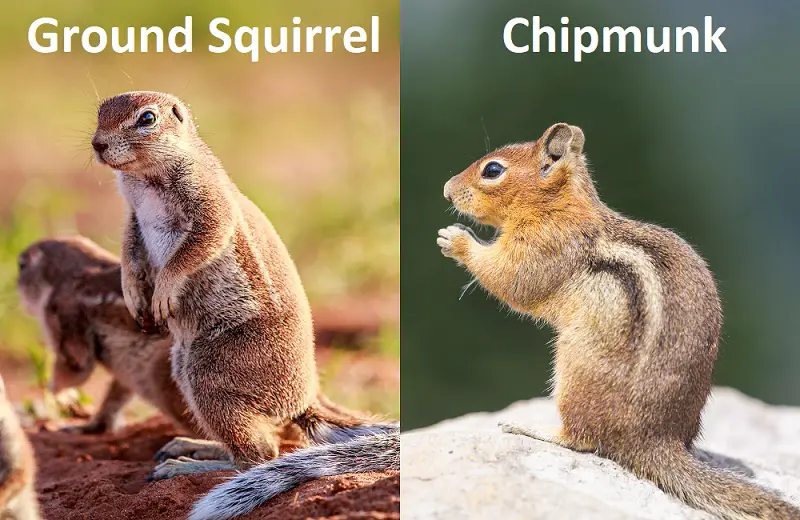
Ground Squirrel Vs. Chipmunk What Are The Differences?
Fun Facts: Chipmunk vs Squirrel Chipmunk Fun Facts. Chipmunks are able to collect up to 175 acorns in a day. A group of chipmunks is called a scurry. An entrance to a chipmunk's home, a burrow or den, can extend 20 feet (about 6 meters) long. The chipmunk's 'bedroom' in the burrow is extremely clean and tidy.
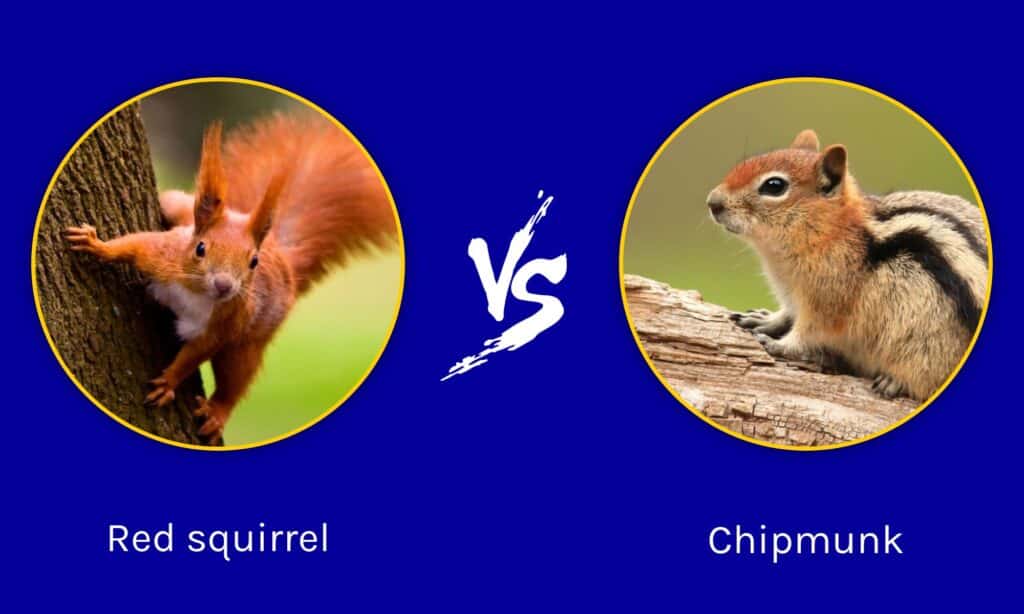
Red Squirrel vs Chipmunk Key Differences Explained
Chipmunks tend to be much smaller than squirrels. They measure 8 to 10 inches long and weighing around 2 to 5 ounces. On the other hand, squirrels can range from 16 to 21 inches in length and weigh as much as 1 - 1.5 pounds. It means that chipmunks are roughly one-third to one-sixth the size of an average squirrel.
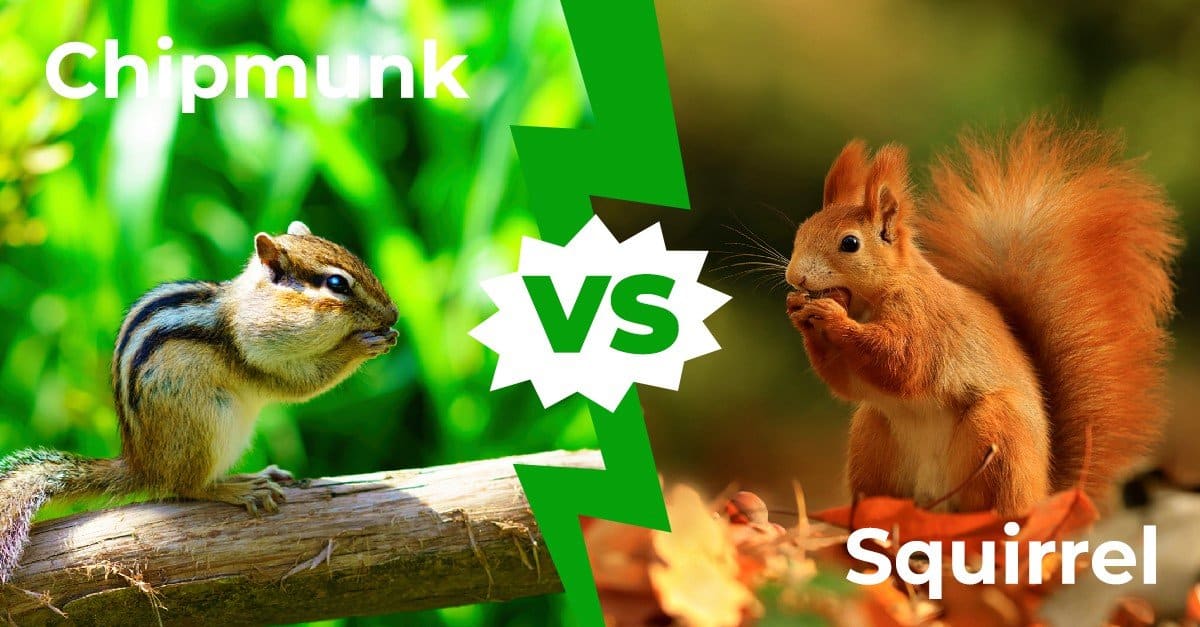
Chipmunk vs Squirrel 7 Main Differences Explained AZ Animals
Chipmunks are part of the Tamias genus, while squirrels belong to the Sciurus genus. These small mammals are known for their agility, quick movements, and ability to climb trees. Importance of understanding the differences between them. Understanding the differences between chipmunks and squirrels is crucial for various reasons.

Cute Animals Pictures Chipmunk and Grey Squirrel, WP08880.
Still, they will eat insects and small animals when necessary. As for lifespan, chipmunks usually have a shorter life span than squirrels. The former can live between 2-5 years and up to 6-10 years in captivity. Squirrels can last 5-10 years. However, some species can live up to an impressive 20 years in captivity.
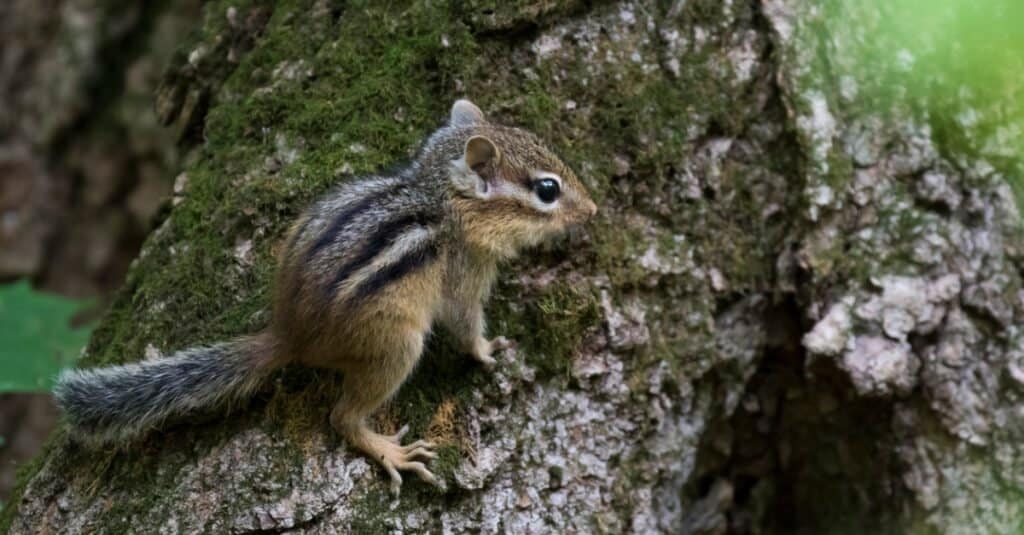
Ground Squirrel vs Chipmunk 5 Key Differences AZ Animals
Chipmunk vs. Tree Squirrel Differences . Chipmunks have stripes and are smaller than tree squirrels, they live in underground burrows while tree squirrels live in nests or dens in trees. There are notable differences between tree squirrels, like Eastern gray squirrels, red squirrels, fox squirrels, and chipmunks: These include . Size; Dwelling

Chipmunk vs Squirrel Unveiling the Key DISTINCTIONS Squirrel University
Chipmunk - 7-10 inches, 1-5 ounces, brownish-gray, reddish-brown. Squirrel - 8-20 inches, 6 ounces -3 pounds, gray, brownish-grey. Chipmunks store food in their cheeks and take it back to their burrows. Squirrels are acrobatic climbers who rely on trees and branches.